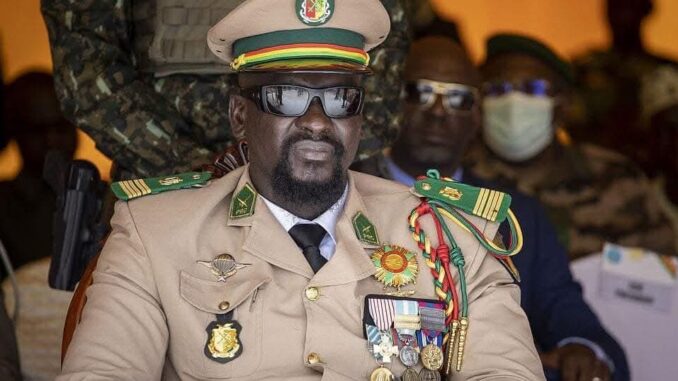
*THE FORCEFUL DEPORTATION OF SIERRA LEONEANS LIVING IN GUINEA: Implications Under International Conventions*
*Raymond A. Kamara*
*Omega National Front*
*15/12/2024*
*Freetown*
*IN RECENT MONTHS* , the Guinean government, under the leadership of *Colonel Mamady Doumbouya* , has taken a controversial stance towards Sierra Leoneans residing in Guinea. Reports of forceful deportations have emerged, raising serious concerns about human rights violations and the implications of such actions under international law.
GUINEA’S DICTATOR MAMADY DOUMBUYA
THIS SITUATION is further complicated by allegations of extensive land grabbing by Guinean authorities from Sierra Leonean territory, leaving many citizens in a state of uncertainty regarding their citizenship and rights.
AS THE GUINEAN GOVERNMENT seeks to secure its borders, the plight of Sierra Leoneans in Guinea highlights the urgent need for international attention and intervention.
THE DEPORTATION of Sierra Leoneans from Guinea is not merely a matter of national policy; it raises significant questions about the adherence to international conventions that protect the rights of individuals, particularly refugees and migrants. The 1951 Refugee Convention and its 1967 Protocol outline the obligations of states to protect individuals fleeing persecution and violence.
THE FORCEFUL deportation of Sierra Leoneans, many of whom may be seeking refuge from the socio-political instability in their home country, stands in stark contrast to these international commitments.
MOREOVER, the treatment of Sierra Leoneans in Guinea can be viewed through the lens of the African Union’s Agenda 2063, which emphasizes the importance of human rights, peace, and security across the continent.
THE DEPORTATIONS not only undermine the principles of solidarity and cooperation among African nations but also threaten the stability of the region. The forced removal of individuals who have established lives in Guinea can lead to increased tensions and conflict, further destabilizing both countries.
THE SITUATION is exacerbated by the allegations of land grabbing by the Guinean government. Reports indicate that Guinean authorities have encroached upon Sierra Leonean territory, seizing land that rightfully belongs to Sierra Leoneans.
THIS AGGRESSIVE expansionism not only violates the sovereignty of Sierra Leone but also raises questions about the legality of such actions under international law. The United Nations Convention on the Law of the Sea and various bilateral agreements between the two nations should provide a framework for resolving territorial disputes, yet the current actions of the Guinean government suggest a blatant disregard for these legal instruments.
*GEOPOLITICAL CONTEXT*
*THE GEOPOLITICAL dynamics between Sierra Leone and Guinea are complex, influenced by historical grievances and contemporary security concerns.* The Guinean government’s actions can be interpreted as a response to perceived threats from Sierra Leone, particularly in light of ongoing border disputes and resource competition. However, the heavy-handed approach adopted by the Guinean authorities risks exacerbating tensions and undermining diplomatic efforts to resolve these issues peacefully.
*INTERNATIONAL LEGAL INSTRUMENTS TO BE CONSIDERED*
HUMAN RIGHTS VIOLATIONS
*THE DEPORTATION process has been marked by numerous human rights violations.* Reports indicate that Guinean military and police forces have engaged in the arbitrary arrest of Sierra Leoneans, often without due process.
DETAINEES have alleged instances of torture and inhumane treatment while in custody, raising serious concerns about the adherence to international human rights standards. The Universal Declaration of Human Rights (UDHR) and the International Covenant on Civil and Political Rights (ICCPR) both emphasize the right to security of person and protection from torture, which are being blatantly disregarded in this context.
MOREOVER, the destruction of properties belonging to Sierra Leoneans further exacerbates the situation. Such actions not only violate the right to property as enshrined in the African Charter on Human and Peoples’ Rights but also contribute to a climate of fear and instability among the affected communities.
THE IMPLICATIONS of these violations extend beyond individual cases, threatening to undermine the rule of law and respect for human rights in the region.
*INTERNATIONAL LEGAL FRAMEWORK*
*THE ACTIONS of the Guinean government can be scrutinized through the lens of various international conventions.* The principle of non-refoulement, enshrined in the 1951 Refugee Convention and its 1967 Protocol, prohibits the return of individuals to countries where they may face persecution or serious harm.
THE DEPORTATION of Sierra Leoneans, particularly in the context of reported human rights abuses, raises significant concerns regarding compliance with this principle.
THE LACK of response from Sierra Leone’s President Julius Maada Bio is particularly concerning. As the leader of a nation facing aggression from a neighboring country, President Bio is responsible for protecting the rights and welfare of his citizens. The apparent inaction in the face of such violations raises questions about the effectiveness of Sierra Leone’s foreign policy and its commitment to safeguarding its citizens abroad. The government must take a proactive stance, engaging with international bodies and seeking diplomatic solutions to address the plight of Sierra Leoneans in Guinea.
FURTHERMORE, the international community has a crucial role to play in addressing this crisis. Organizations such as the United Nations High Commissioner for Refugees (UNHCR) and the African Union must intervene to ensure that the rights of Sierra Leoneans are upheld. Diplomatic pressure should be applied to the Guinean government to halt the deportations and to respect the rights of individuals seeking refuge.
ADDITIONALLY, the international community should work towards facilitating dialogue between Sierra Leone and Guinea to resolve territorial disputes amicably and prevent further escalation of tensions.
THE IMPLICATIONS of the forceful deportation of Sierra Leoneans living in Guinea extend beyond the immediate humanitarian crisis. They serve as a reminder of the fragility of peace and stability in the region and the need for robust mechanisms to protect the rights of individuals, regardless of their nationality. The situation calls for a renewed commitment to international law and human rights, emphasizing the importance of cooperation and solidarity among African nations.
NEVERTHELESS, the forceful deportation of Sierra Leoneans from Guinea, coupled with allegations of land grabbing, presents a complex challenge that requires urgent attention from both national and international actors. The Guinean government’s actions not only violate international conventions but also threaten the stability of the region. It is imperative for Sierra Leone’s leadership to take a stand in defense of its citizens, while the international community must work collaboratively to uphold human rights and promote peaceful resolutions to conflicts. Only through concerted efforts can the rights and dignity of Sierra Leoneans in Guinea be restored, ensuring that they are not left in the shambles of citizenship and identity.
*End* .
*OVER AND OUT!*
©️ *Omega National Front*

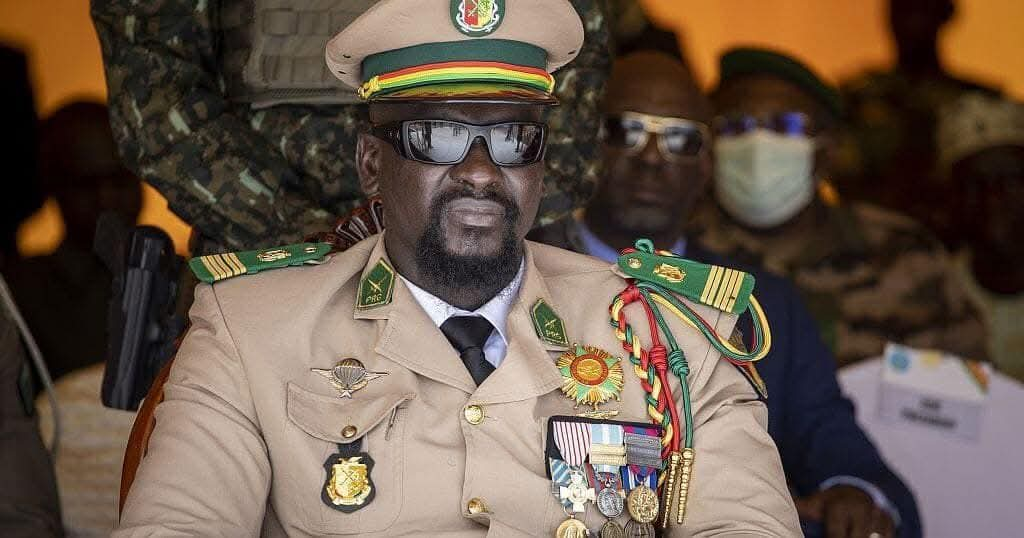
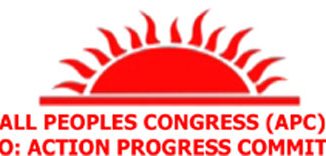
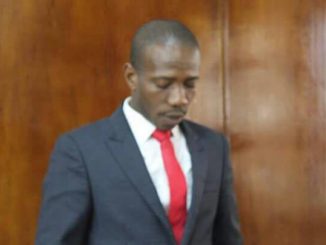
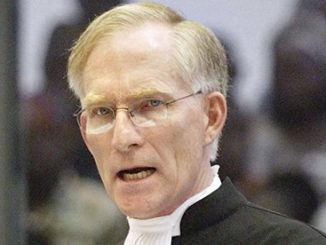
Leave a Reply